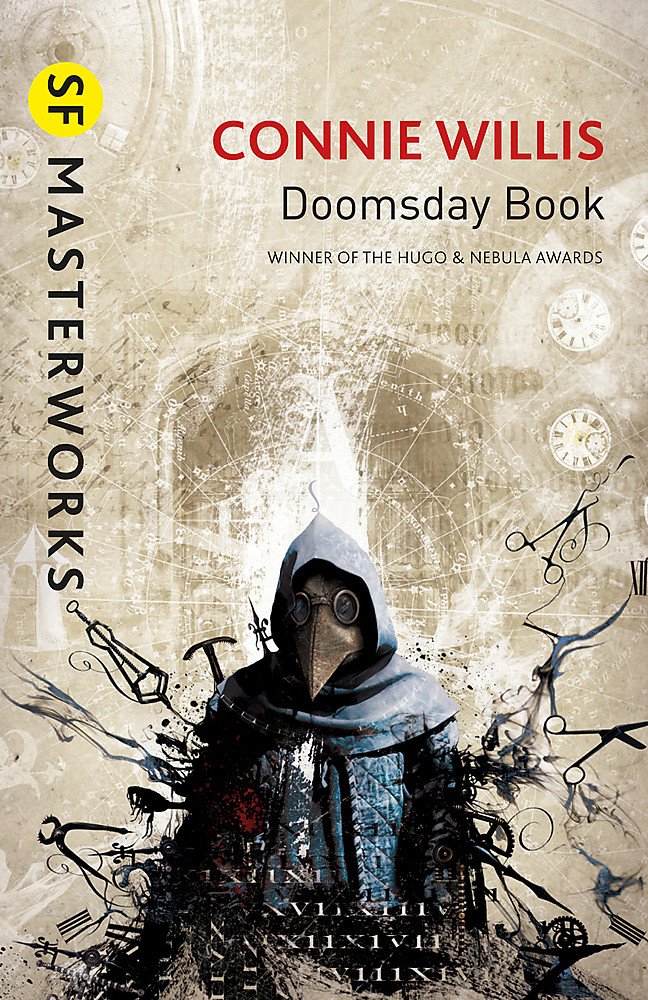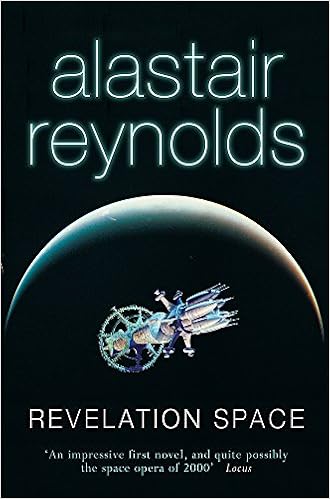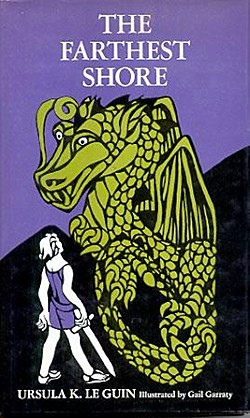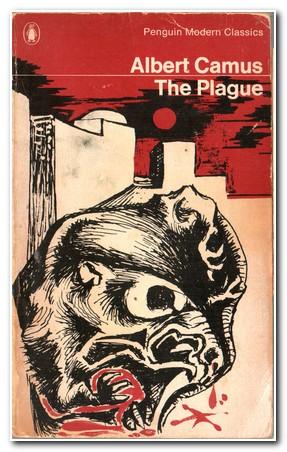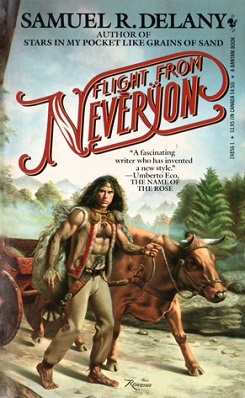In The Famous Victories of Henry the Fifth (anonymous):
HENRY 5: Ah Harry, thrice unhappie, that hath neglect so
long from visiting of thy sicke father, I will goe. Nay but why
doo I not go to the Chamber of my sick father, to comfort the
melancholy soule of his bodie: his soule said I, here is his ...
bodie indeed, but his soule is whereas it needs no bodie.
Now
thrice accursed Harry, that hath offended thy father so much,
and could not I craue pardon for all. Oh my dying father,
curst be the day wherin I was borne, and accursed be the
houre wherin I was begotten, but what shal I do? if weeping
teares which come too late, may suffice the negligence neglected
too soone, I wil weepe day and night until the
fountaine be drie with weeping.
[Exit.]
[Enter Lord of Exeter and Oxford.]
EXETER: Come easily my Lord, for waking of the King.
HENRY 4: Now my Lords.
OXFORD: How doth your Grace feele your selfe?
HENRY 4: Somewhat better after my sleepe,
But good my Lords take off my Crowne,
Remoue my chaire a litle backe, and set me right.
BOTH: And please your grace, the crown is taken away.
HENRY 4: The Crowne taken away,
Good my Lord of Oxford, go see who hath done this deed:
No doubt tis some vilde traitor that hath done it,
To depriue my sonne, they that would do it now,
Would seeke to scrape and scrawle for it after my death.
[Enter Lord of Oxford with the Prince.]
OXFORD: Here and please your Grace ...
Is my Lord the yong Prince with the Crowne.
HENRY 4: Why how now my sonne?
I had thought the last time I had you in schooling,
I had giuen you a lesson for all,
And do you now begin againe?
Why tel me my sonne,
Doest thou thinke the time so long,
that thou wouldest haue it before the
Breath be out of my mouth?
HENRY 5: Most soueraign Lord, and welbeloued father, ...
I came into your Chamber to comfort the melancholy
Soule of your bodie, and finding you at that time
Past all recouerie, and dead to my thinking,
God is my witnesse, and what should I doo,
But with weeping tears lament the death of you my father,
And after that, seeing the Crowne, I tooke it:
And tel me my father, who might better take it then I,
After your death? but seeing you liue,
I most humbly render it into your Maiesties hands,
And the happiest man aliue, that my father liue: ...
And liue my Lord and Father, for euer.
HENRY 4: Stand vp my sonne,
Thine answere hath sounded wel in mine eares,
For I must need confesse that I was in a very sound sleep,
And altogither unmindful of thy comming:
But come neare my sonne,
And let me put thee in possession whilst I liue,
That none depriue thee of it after my death.
HENRY 5: Well may I take it at your maiesties hands,
But it shal neuer touch my head, so long as my father liues. ...
[He taketh the Crowne.]
HENRY 4: God giue thee ioy my sonne,
God blesse thee and make thee his seruant,
And send thee a prosperous raigne,
For God knowes my sonne, how hardly I came by it,
And how hardly I haue maintained it.
In King Henry IV Part 2 (by Shakespeare):
WARWICK. Will't please your Grace to go along with us?
PRINCE. No; I will sit and watch here by the King.
Exeunt all but the PRINCE
Why doth the crown lie there upon his pillow,
Being so troublesome a bedfellow?
O polish'd perturbation! golden care!
That keep'st the ports of slumber open wide
To many a watchful night! Sleep with it now!
Yet not so sound and half so deeply sweet
As he whose brow with homely biggen bound
Snores out the watch of night. O majesty!
When thou dost pinch thy bearer, thou dost sit
Like a rich armour worn in heat of day
That scald'st with safety. By his gates of breath
There lies a downy feather which stirs not.
Did he suspire, that light and weightless down
Perforce must move. My gracious lord! my father!
This sleep is sound indeed; this is a sleep
That from this golden rigol hath divorc'd
So many English kings. Thy due from me
Is tears and heavy sorrows of the blood
Which nature, love, and filial tenderness,
Shall, O dear father, pay thee plenteously.
My due from thee is this imperial crown,
Which, as immediate from thy place and blood,
Derives itself to me. [Putting on the crown] Lo where it
sits --
Which God shall guard; and put the world's whole strength
Into one giant arm, it shall not force
This lineal honour from me. This from thee
Will I to mine leave as 'tis left to me. Exit
KING. Warwick! Gloucester! Clarence!
Re-enter WARWICK, GLOUCESTER, CLARENCE
CLARENCE. Doth the King call?
WARWICK. What would your Majesty? How fares your Grace?
KING. Why did you leave me here alone, my lords?
CLARENCE. We left the Prince my brother here, my liege,
Who undertook to sit and watch by you.
KING. The Prince of Wales! Where is he? Let me see him.
He is not here.
WARWICK. This door is open; he is gone this way.
PRINCE HUMPHREY. He came not through the chamber where we
stay'd.
KING. Where is the crown? Who took it from my pillow?
WARWICK. When we withdrew, my liege, we left it here.
KING. The Prince hath ta'en it hence. Go, seek him out.
Is he so hasty that he doth suppose
My sleep my death?
Find him, my lord of Warwick; chide him hither.
Exit WARWICK
This part of his conjoins with my disease
And helps to end me. See, sons, what things you are!
How quickly nature falls into revolt
When gold becomes her object!
For this the foolish over-careful fathers
Have broke their sleep with thoughts,
Their brains with care, their bones with industry;
For this they have engrossed and pil'd up
The cank'red heaps of strange-achieved gold;
For this they have been thoughtful to invest
Their sons with arts and martial exercises;
When, like the bee, tolling from every flower
The virtuous sweets,
Our thighs with wax, our mouths with honey pack'd,
We bring it to the hive, and, like the bees,
Are murd'red for our pains. This bitter taste
Yields his engrossments to the ending father.
Re-enter WARWICK
Now where is he that will not stay so long
Till his friend sickness hath determin'd me?
WARWICK. My lord, I found the Prince in the next room,
Washing with kindly tears his gentle cheeks,
With such a deep demeanour in great sorrow,
That tyranny, which never quaff'd but blood,
Would, by beholding him, have wash'd his knife
With gentle eye-drops. He is coming hither.
KING. But wherefore did he take away the crown?
Re-enter PRINCE HENRY
Lo where he comes. Come hither to me, Harry.
Depart the chamber, leave us here alone.
Exeunt all but the KING and the PRINCE
PRINCE. I never thought to hear you speak again.
KING. Thy wish was father, Harry, to that thought.
I stay too long by thee, I weary thee.
Dost thou so hunger for mine empty chair
That thou wilt needs invest thee with my honours
Before thy hour be ripe? O foolish youth!
Thou seek'st the greatness that will overwhelm thee.
Stay but a little, for my cloud of dignity
Is held from falling with so weak a wind
That it will quickly drop; my day is dim.
Thou hast stol'n that which, after some few hours,
Were thine without offense; and at my death
Thou hast seal'd up my expectation.
Thy life did manifest thou lov'dst me not,
And thou wilt have me die assur'd of it.
Thou hid'st a thousand daggers in thy thoughts,
Which thou hast whetted on thy stony heart,
To stab at half an hour of my life.
What, canst thou not forbear me half an hour?
Then get thee gone, and dig my grave thyself;
And bid the merry bells ring to thine ear
That thou art crowned, not that I am dead.
Let all the tears that should bedew my hearse
Be drops of balm to sanctify thy head;
Only compound me with forgotten dust;
Give that which gave thee life unto the worms.
Pluck down my officers, break my decrees;
For now a time is come to mock at form --
Harry the Fifth is crown'd. Up, vanity:
Down, royal state. All you sage counsellors, hence.
And to the English court assemble now,
From every region, apes of idleness.
Now, neighbour confines, purge you of your scum.
Have you a ruffian that will swear, drink, dance,
Revel the night, rob, murder, and commit
The oldest sins the newest kind of ways?
Be happy, he will trouble you no more.
England shall double gild his treble guilt;
England shall give him office, honour, might;
For the fifth Harry from curb'd license plucks
The muzzle of restraint, and the wild dog
Shall flesh his tooth on every innocent.
O my poor kingdom, sick with civil blows!
When that my care could not withhold thy riots,
What wilt thou do when riot is thy care?
O, thou wilt be a wilderness again.
Peopled with wolves, thy old inhabitants!
PRINCE. O, pardon me, my liege! But for my tears,
The moist impediments unto my speech,
I had forestall'd this dear and deep rebuke
Ere you with grief had spoke and I had heard
The course of it so far. There is your crown,
And he that wears the crown immortally
Long guard it yours! [Kneeling] If I affect it more
Than as your honour and as your renown,
Let me no more from this obedience rise,
Which my most inward true and duteous spirit
Teacheth this prostrate and exterior bending!
God witness with me, when I here came in
And found no course of breath within your Majesty,
How cold it struck my heart! If I do feign,
O, let me in my present wildness die,
And never live to show th' incredulous world
The noble change that I have purposed!
Coming to look on you, thinking you dead—
And dead almost, my liege, to think you were—
I spake unto this crown as having sense,
And thus upbraided it: 'The care on thee depending
Hath fed upon the body of my father;
Therefore thou best of gold art worst of gold.
Other, less fine in carat, is more precious,
Preserving life in med'cine potable;
But thou, most fine, most honour'd, most renown'd,
Hast eat thy bearer up.' Thus, my most royal liege,
Accusing it, I put it on my head,
To try with it—as with an enemy
That had before my face murd'red my father—
The quarrel of a true inheritor.
But if it did infect my blood with joy,
Or swell my thoughts to any strain of pride;
If any rebel or vain spirit of mine
Did with the least affection of a welcome
Give entertainment to the might of it,
Let God for ever keep it from my head,
And make me as the poorest vassal is,
That doth with awe and terror kneel to it!
KING. O my son,
God put it in thy mind to take it hence,
That thou mightst win the more thy father's love,
Pleading so wisely in excuse of it!
Come hither, Harry; sit thou by my bed,
And hear, I think, the very latest counsel
That ever I shall breathe. God knows, my son,
By what by-paths and indirect crook'd ways
I met this crown; and I myself know well
How troublesome it sat upon my head:
To thee it shall descend with better quiet,
Better opinion, better confirmation;
For all the soil of the achievement goes
With me into the earth. It seem'd in me
But as an honour snatch'd with boist'rous hand;
And I had many living to upbraid
My gain of it by their assistances;
Which daily grew to quarrel and to bloodshed,
Wounding supposed peace. All these bold fears
Thou seest with peril I have answered;
For all my reign hath been but as a scene
Acting that argument. And now my death
Changes the mood; for what in me was purchas'd
Falls upon thee in a more fairer sort;
So thou the garland wear'st successively.
Yet, though thou stand'st more sure than I could do,
Thou art not firm enough, since griefs are green;
And all my friends, which thou must make thy friends,
Have but their stings and teeth newly ta'en out;
By whose fell working I was first advanc'd,
And by whose power I well might lodge a fear
To be again displac'd; which to avoid,
I cut them off; and had a purpose now
To lead out many to the Holy Land,
Lest rest and lying still might make them look
Too near unto my state. Therefore, my Harry,
Be it thy course to busy giddy minds
With foreign quarrels, that action, hence borne out,
May waste the memory of the former days.
More would I, but my lungs are wasted so
That strength of speech is utterly denied me.
How I came by the crown, O God, forgive;
And grant it may with thee in true peace live!
PRINCE. My gracious liege,
You won it, wore it, kept it, gave it me;
Then plain and right must my possession be;
Which I with more than with a common pain
'Gainst all the world will rightfully maintain.
There's actually a three-way comparison available here, if we also include Hal's speech over the sleeping King, compared with how he recounts the incident later. Without necessarily doubting the sincerity of Hal's general gist (he loves his dad, he doesn't want him to die, he's going to mend his ways etc. etc.), we can clearly tell that his recollection embellishes, conceals, and transforms. Hal is not performing his socks off in hope of a moment of cognitive and affective sharing. He's doing something he learned from the best, from Sir John Falstaff: he's coming up with a cover story. The length of the King's lament -- and the kinds of excuses it implicitly pre-empts -- gives the actor playing Hal plenty of tense silence in which to be furiously devising.
(In a similar vein, Falstaff's companions seem to delight in nudging Falstaff into tight corners: Let's see him talk his way out of THIS one. The otherwise ponderous objections his companions tend to raise to Falstaff's excuses confirm this is what's going on: they like to play it straight, and push Falstaff to extremes of brazen and nimble wit).
In view of the theme of debt and indebtedness that runs so prominently throughout Part One and is still doing interesting things in Part Two, it is interesting that what Hal elides is who owes what to whom:
[...] My gracious lord! my father!
This sleep is sound indeed; this is a sleep
That from this golden rigol hath divorc'd
So many English kings. Thy due from me
Is tears and heavy sorrows of the blood
Which nature, love, and filial tenderness,
Shall, O dear father, pay thee plenteously.
 Within SF, dystopia and public health policy go hand-in-hand. In fact, SF seems practically incapable of imagining any holistic stance on the myriad factors that inform the happiness and flourishing of populations, unless the interested party is some sinister elite: a paternalistic and unaccountable dystopian government, as in Aldous Huxley’s Brave New World, or perhaps a clandestine sect of eugenicists like the Bene Gesserit of Frank Herbert’s Dune. Perhaps there are some partial exceptions. In threads of transhumanism and biopunk traceable through works by Iain M. Banks, Octavia Butler, Ted Chiang, Samuel R. Delany, Cory Doctorow, Greg Egan, Gwyneth Jones, Nancy Kress, Yoon Ha Lee, Annalee Newitz, Kim Stanley Robinson, Justina Robson, Bruce Sterling, Charles Stross, Jeanette Winterson, and others, the somatic becomes vividly tractable to speculative technologies. Bodies and consciousnesses become the raw material for design and experiment. Bodily distresses, diseases, disorders, disabilities, and limitations may be eradicated altogether, or transformed or recontextualised to de-pathologize them. Often such SF goes beyond crudely fantasizing medical techno-fixes, and examines how notions of ‘healthy’ and ‘normal’ are constructed in the first place. But what such SF almost never does is offer any account of the democratization of medicalized desire, expertise, techniques, and resources. There are mavericks who work outside of the medical-industrial complex, or there is its wholesale displacement by biomedical abundance supremely responsive to individual desire … and that’s it.
Within SF, dystopia and public health policy go hand-in-hand. In fact, SF seems practically incapable of imagining any holistic stance on the myriad factors that inform the happiness and flourishing of populations, unless the interested party is some sinister elite: a paternalistic and unaccountable dystopian government, as in Aldous Huxley’s Brave New World, or perhaps a clandestine sect of eugenicists like the Bene Gesserit of Frank Herbert’s Dune. Perhaps there are some partial exceptions. In threads of transhumanism and biopunk traceable through works by Iain M. Banks, Octavia Butler, Ted Chiang, Samuel R. Delany, Cory Doctorow, Greg Egan, Gwyneth Jones, Nancy Kress, Yoon Ha Lee, Annalee Newitz, Kim Stanley Robinson, Justina Robson, Bruce Sterling, Charles Stross, Jeanette Winterson, and others, the somatic becomes vividly tractable to speculative technologies. Bodies and consciousnesses become the raw material for design and experiment. Bodily distresses, diseases, disorders, disabilities, and limitations may be eradicated altogether, or transformed or recontextualised to de-pathologize them. Often such SF goes beyond crudely fantasizing medical techno-fixes, and examines how notions of ‘healthy’ and ‘normal’ are constructed in the first place. But what such SF almost never does is offer any account of the democratization of medicalized desire, expertise, techniques, and resources. There are mavericks who work outside of the medical-industrial complex, or there is its wholesale displacement by biomedical abundance supremely responsive to individual desire … and that’s it.








